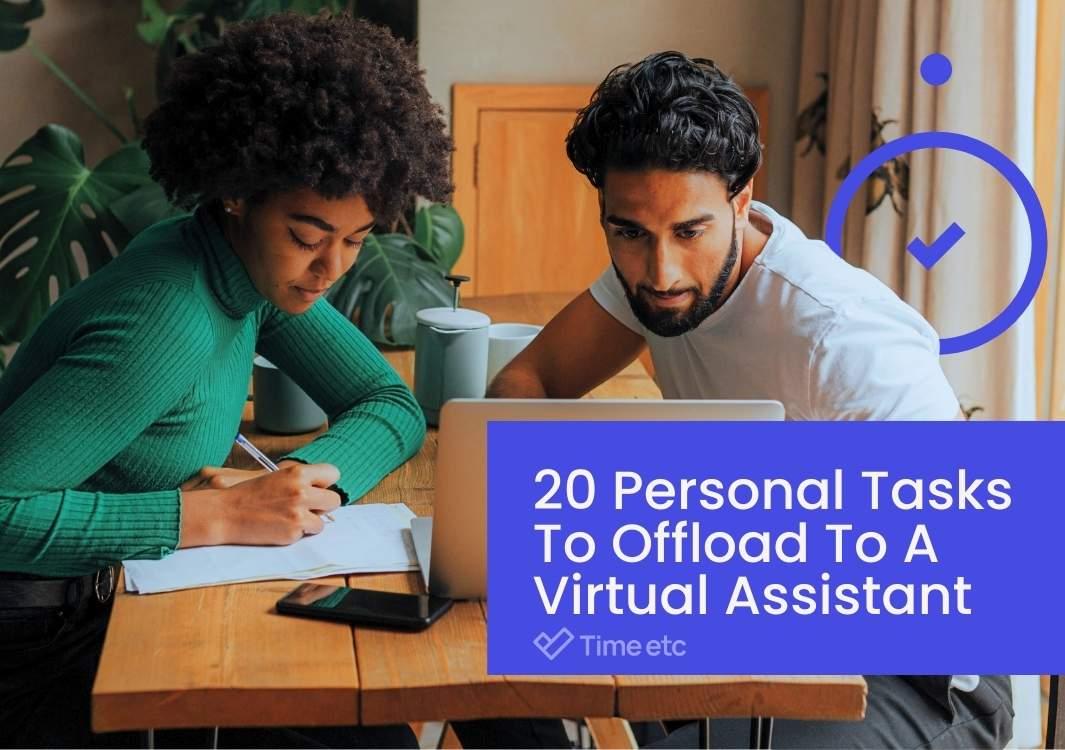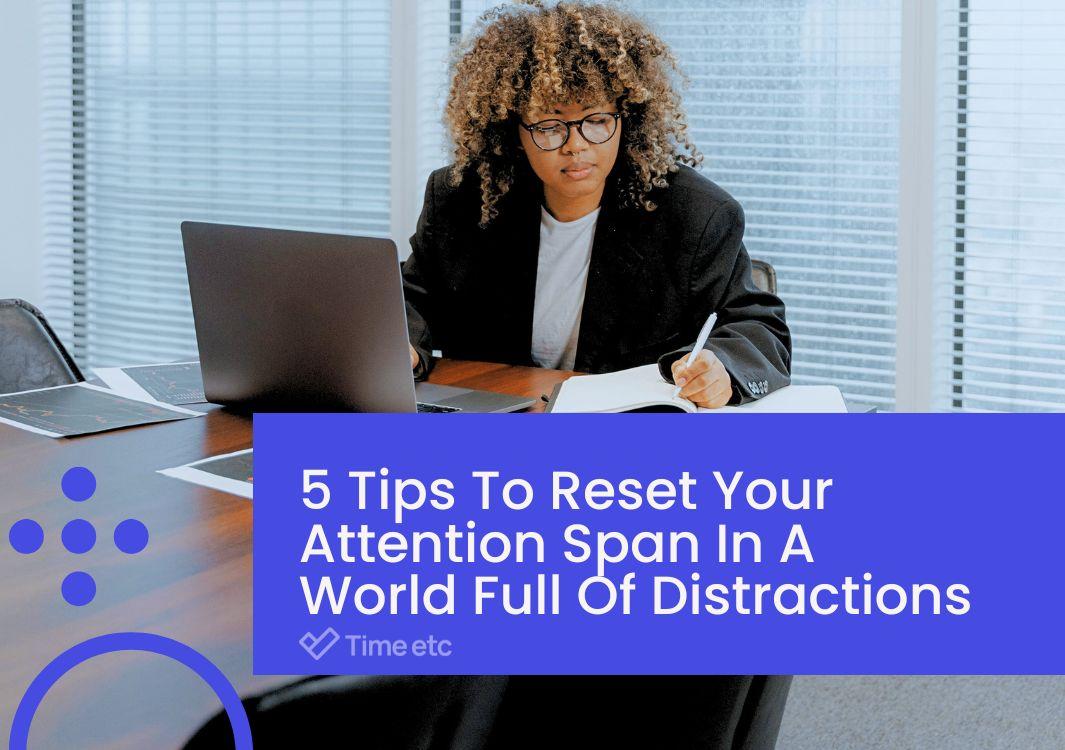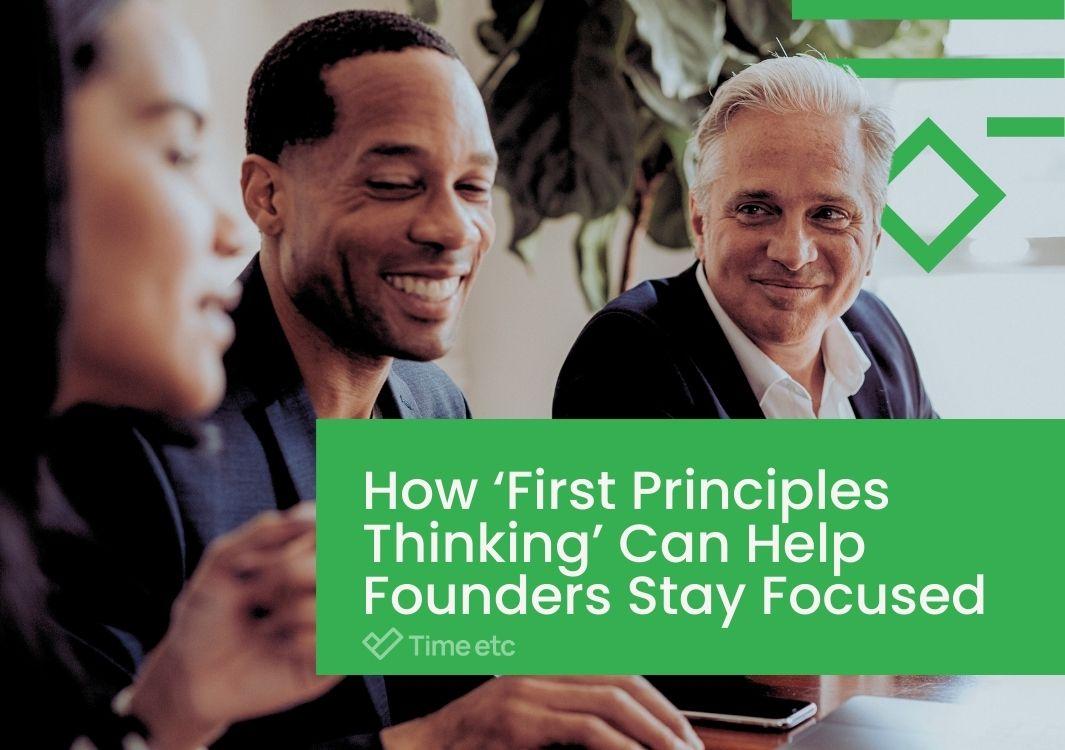It might be tempting to take some shortcuts when going through the process of hiring a Virtual Assistant especially if you hired for your business before.
However, hiring a Virtual Assistant isn’t the same as bringing in an ordinary member of staff because you’re unlikely to meet them in person so your process must be particularly thorough. It’s not for the faint-hearted but putting in the work now will save a lot of stress and lost time later on if you find out your Virtual Assistants wasn’t a good fit after all.
In this chapter, we’ll take you through our recommended process for hiring a Virtual Assistant and we’ll go into granular detail to make sure your final choice is the best one for you.
In addition to the more obvious markers of an excellent Virtual Assistant, we’ll take you through the traits you should look for but may not have considered before
This chapter is extensive and will be a lot of work but hiring the right Virtual Assistant for you is too important to be casual about.
One thing to bear in mind is that premium Virtual Assistant providers, like Time etc, add significant value because they conduct this entire process and all of the work associated with it for you. All you have to do is pick the assistant you like best. At Time etc we only select about 2% of the applicants that apply to be Virtual Assistants through our site so we’re pretty picky.
If you decide to hire a Virtual Assistant directly or through a marketplace, you’re going to need to follow the process in this article and should expect to review at least 50 applications or profiles in order to hire one strong virtual assistant. Often the number is a lot higher so don’t underestimate this workload or the importance of it.
We’ve broken down the process into 7 steps or phases that you’ll need to work through one by one.
Phase One: Identify Personal And Character Traits
Let’s start with making a list of the traits you should look out for in your Virtual Assistant. This phase is often overlooked but is so important because each business has different needs and you need to know your Virtual Assistant will fit well into yours.
We’ve based this list on Time etc’s own recruitment of many thousands of virtual assistants over the years but it’s not exhaustive. There may be other traits you should look for, but only you will know based on your business, so take some time to think about what personality and characteristics your ideal Virtual Assistant will need.
Basic Traits
We always start with personality traits including problem-solving skills, accountability, and reliability. These traits are the ones most Virtual Assistants use daily regardless of the work they do so look for evidence that candidates can demonstrate these.
Your Virtual Assistant needs to be able to handle tasks without referring to you every five minutes and have confidence in their decision-making. So look for evidence that they’re confident at solving problems, take responsibility when things go wrong, and can be relied upon to be consistent, on time, and committed.
To establish whether people have these traits you can devise some targeted questions or develop a short quiz or test to sift out those who are weaker in these areas.
Integrity
Our next trait integrity. When you won’t be able to monitor and manage someone in person it’s even more important that you know you can trust them. Depending on the tasks you need your Virtual Assistant to complete, they’ll likely have access to sensitive business and personal information that needs to be kept secure and confidential.
You also need to know that they’ll do their work to a high standard without taking shortcuts when they are working alone.
Honesty comes under the umbrella of integrity and is an essential trait in a Virtual Assistant. If they make a mistake it’s crucial that you’re confident they will tell you so you can avoid small problems becoming big unmanageable ones.
Positive Attitude
A positive attitude is also on our list. You will need to build a close, professional relationship with your Virtual Assistant and a great attitude is an essential ingredient of that. Think about whether you need a personality that balances yours or mirrors yours but either way, a negative attitude will see the client/VA relationship sour quickly.
While you may be able to gauge a positive attitude when you talk to a potential Virtual Assistant it’s a good idea to dig a little deeper and ask for examples of this trait. You can also ask how lucky your candidate considers themselves to be; if the person gives a low score, it’s a strong indication of a negative attitude.
Ego
Another trait on our list of characteristics to check is whether your candidate has a well-managed ego. Someone with a very high opinion of themselves can be a challenge to manage and you’re hiring an assistant to alleviate work, not create more! Ideally, you're looking for someone with a “just right” level of self-confidence and self-belief but avoids arrogant or clearly egotistical statements. At Time etc we do this with a series of simple automated questions at the screening stage.
Assertiveness
Assertiveness is something we actively test to see how our candidates handle certain real-life situations because if there is one thing all assistants need, it’s a lot of assertiveness!
Many times your Virtual Assistant will be dealing with people on your behalf, handling challenging people or situations. Tenacity and assertiveness are key traits because without them many of your tasks won’t get done. By assessing a Virtual Assistant’s assertiveness you know you won’t have to step in every time they come up against a barrier.
Education
Education is the next area you need to assess. The level of education you require will be up to you based on what tasks you need your Virtual Assistant to complete.
At Time etc we prefer a college education, although in our experience some of the strongest organizers and administrators have not received a college education at all so each candidate should be assessed on their merits.
Experience
As important as everything else we’ve already discussed, is relevant work experience. Many people who start out as Virtual Assistants do so as a transition from a career, sometimes in a completely different sector or industry or a completely different role. This can be wonderful for finding people with interesting skills and experience, but you need to make sure they are a good fit for your needs.
For instance, if you’re looking for an assistant who is going to act as your executive assistant, make sure they have this specific experience and know what that position requires. Never make assumptions.
Language And Communication
English skills and communication ability can vary widely, especially when hiring an assistant overseas. We’ve found there is a huge fluctuation in English and communication ability among assistants, even those based within the country. So this is worth checking to ensure the assistant you select can represent you accurately and complete their tasks to the level you require.
We’ve devised some uncomplicated tests to establish these skills and suggest you do the same if you’re hiring directly. Test for basic grammar and spelling mistakes as well as clear, well-written sentences to make sure their language and communication skills are of a good standard.
Technical Skills
Next up, you need to make sure your assistant is clued up on tech skills including any platforms you might use in your business. Having a good basic knowledge of things like Google Suite is a must for any assistant, but more importantly, an ability to embrace and learn new tech and adapt as tech changes is essential too.
If your business uses fairly niche software a technically proficient assistant will still need some time to familiarise themselves with it. But if you hire someone who hasn’t even heard of Google Drive, they’ll be doing extensive training on your dime before you can even hand over tasks.
Managing expectations
Finally, you need to know that your Virtual Assistant plans and wants to be an assistant for the long term. If you decide to hire directly you will inevitably get responses from people who have only just become a Virtual Assistant or are trying it out. If you hire someone who later decides the role isn’t for them it can be incredibly frustrating and disruptive when you’ve invested time, effort, and money into training them.
Think carefully about hiring someone who has recently left their job, been made redundant, or who has recently experienced a major life change. All these circumstances may mean they’re just trying the position on for size and there’s no guarantee they will commit to the work long term.
This our basic list for you to build on. Consider if there are other traits you should look for depending on your needs and then develop your strategy to screen for them in your hiring process. We’ll take a look at the screening phase next.
Phase Two: Screening
Once you’re happy you have a comprehensive list of traits that you require in an assistant you’ll need a process in order to find a Virtual Assistant and assess how well they match your requirements.
We’ve refined this process over many years at Time etc so if you don’t feel like creating your own recruitment process we’d be delighted to do the hard work for you and find you the perfect premium Virtual Assistant. Just get in touch if you’d rather hand the work over to us.
If you’re going to run the process yourself, here’s what you’ll need to consider, all based on our own procedures.
Advertising
You’ll need to create an advert or at least an invitation to apply so that you’ll receive applications from people interested in your VA role. The route you choose will depend on where you plan to recruit your assistant.
It is important that your advert or pitch explains a lot about the role so that interested Virtual Assistants can assess if their skills are a good fit. You’ll need to make the advert or pitch attractive and engaging as you will be one of many people advertising. Virtual Assistants will see a lot of them so you’ll need to grab their attention in order to get them to apply.
Screening
This part can be as time-consuming as making your thorough list of desirable traits. With that list of traits beside you, start to sift and filter CVs/resumes against them, as well as any other specific requirements you have.
Take your time with this because some resumes might tick most of your boxes but fall down on a couple of crucial technical skills that just aren’t teachable in a reasonable amount of time.
At this stage, you’re effectively ‘screening out’ rather than ‘screening in’ and you should let anyone you’re screening out know that they haven’t been successful. Don’t be surprised if you end up passing on most applications as this is typical in our experience. However, depending on where you advertise this might mean saying ‘no’ to a few hundred people, so set aside plenty of time.
Testing
You’ll now be left with a smaller number of applications that meet your requirements on paper. The next task is to narrow those applications again and we recommend conducting some testing in order to do that.
You could devise a multiple-choice style quiz or use a candidate testing tool to test your candidates for the specific traits that you want to recruit for. This is not a phase you should skip. At this point, you’ll have several strong applications but no way of knowing whether someone has exaggerated, or worse. It’s essential to have hard, reliable results around ability and personality to help you make the right decision for you and your business.
Assessment
At this stage, you have screened out unsuitable candidates and tested the candidates who had the strongest applications. Now it’s time to assess the results of the remaining candidates, look at their resumes and create a shortlist of people to interview.
Start by taking a look at each application as a whole by reviewing any test data, re-reading their cover letter, checking through their resume with fresh eyes, and looking at any other documentation that’s been provided.
Have your list of the essential requirements you created at the beginning of the process and discount anyone who, having looked at all the information you now have, doesn’t meet the criteria.
In the assessment stage, you’re looking for specific reasons to invite the candidate for an interview:
- Are they well-matched to your requirements?
- Do they have the experience you are looking for?
- Have they demonstrated the traits and characteristics on your list?
- Have they answered your screening questions correctly to your required language and communication standards?
When you have assessed each of the remaining applications you’ll have your final shortlist and you can invite each of them to an interview.
Phase Three: The Interview
Part One
By this stage, you should only be speaking to a small number of suitable candidates thanks to the screening, testing, and assessment stages you’ve already carried out. It’s a lot of work to get to this stage but it means that you can now focus on less tangible criteria that are more subjective than objective.
The best way to interview Virtual Assistants is by video rather than a phone call because it’s easier to read reactions and body language so we’re going to take a closer look at video interviews.
This is your opportunity to ask in-depth questions and dig deeper about anything you weren’t sure about or that raised questions for you during testing and assessment.
Primarily, this is your opportunity to get to know your potential assistant. Do you feel like they’d make a great fit for you and your business?
It might seem strange that we’re talking about ‘feelings’ but gut instinct about someone is an essential part of hiring a Virtual Assistant and it’s something a lot of people ignore to their cost.
If the interview feels ‘off’ or ‘awkward’, accept that instinct, thank them for their time and move on to the next candidate. Even if you can’t put your finger on what the problem is, do you really want to spend time, money, and mental energy on finding out? Remember, you’re hiring someone you’ll probably never see in person so you need to be able to trust them with part of your business. That’s not something to take a chance with.
Part Two
Interviews should be a two-way conversation, after all, it’s not called an interrogation! Just as you’re assessing if the candidate is a good fit for you, the candidate will be assessing if you’re a good fit for them.
So the second part of the interview is a great opportunity for your candidate to ask about you and your business and you should make sure you give them this opportunity. It’s a great way of finding out if you connect on a human level and whether they would represent you in a manner you’re happy with.
You should prepare a short pitch about you and your business, so they can get to know you and ask you questions about it. If your candidate doesn’t ask questions, we’d recommend moving on at this stage.
Questions reveal a lot about someone, both good and bad, so it’s another great way of finding out if the candidate is the right fit. A great candidate will have questions for you, organically or prepared, so if they don’t have any you’d have to wonder if they’re really invested in you or the process. A great candidate will be interested in you, your business, and how they can help you achieve your goals. No questions or bad questions will reveal a great deal about the candidate.
Phase Four: Making the decision
It’s finally time to decide on who you want to hire. Chances are there will be more than one person who has an excellent application and who felt like they would be a great fit for your business.
To help you decide, make a list of your favorite candidates and write down all the plus and minus points you can think of. If this process prompts further questions or queries don’t be afraid to go back to them and ask or arrange a second interview with the people you are struggling to choose between.
It may help to take another look at your list of essential traits and the process may have highlighted new ones that occur to you. If you’re looking for a tie-breaker, the answer may well be on your essentials list.
Phase Five: Verification
Okay, so you’ve made your final pick of the perfect Virtual Assistant and you’re ready to get started with them right away. Stop! You’re almost there, but not quite.
It’s vital that you verify some important things first, things that are unlikely to be revealed in the application or during the interview no matter how detailed you’ve been.
If you’re going to fully trust your assistant with a part of your business you need to be as sure as you can be about their identity and honesty. Services like ours at Time etc will take care of this stage for you, so you don’t need to worry about it if you decide not to hire directly.
This is where you check that the person you’ve chosen is who you think they are and that there's nothing serious that you need to be concerned about. Skip this stage at your peril! If you’re not going through a service like ours at Time etc, here’s what you should do:
- Follow up on any references to verify the person is legitimate and they completed the work they said they did
- Ask for proof of identity and address, so you know who you’re dealing with
- Verify proof of identity through services like Passbase.com to help you confirm it matches your candidate
- If your work is very sensitive you may need to conduct a full criminal record and financial background check
- Regardless of the nature of your work, we recommend asking your candidate to disclose any criminal convictions or bankruptcies as these may influence your decision to hire
If you find anything you’re unhappy about during this stage, don’t be afraid to say no to the candidate you’ve chosen. We understand that you’ve invested a great deal of time and effort to get to this stage but it just isn’t worth the risk of hiring someone you’re not sure about. It’s a time where you need to act with your head not your heart, even if it means starting all over again.
Phase Six: Onboarding
Congratulations! You’ve found your perfect assistant, they’ve agreed to work with you and passed your verification process with flying colors. Now it’s time to onboard them into your business.
It’s really worth giving your onboarding process some serious thought because great onboarding will set your professional relationship on solid foundations and both of you up for success.
If you’re new to hiring or you’ve not onboarded someone before, think of it as the business version of flight safety instructions: Everything they need to know and have for a safe and happy working relationship with you.
In the early days, your Virtual Assistant will need an overview of a typical day/week/month, issues that might arise and how to deal with them, an understanding of important/key deadlines, and how you like to run your business. Here are some ideas to get you started that you can adapt to your business:
- Write up a concise ‘assistant handbook’ that your assistant can refer back to as they work
- Establish your typical operational hours and when you expect to be able to speak to your assistant
- Handover some of your more simple tasks and make it clear what the deadlines are
- Build up the handover of tasks steadily over the initial days to avoid overwhelm
- Be clear on what is essential (for example tasks or company communication style) and where your assistant has some autonomy over tasks and timeframes
Phase Seven: Monitoring, feedback, and review
At this stage your assistant is in, they’ve been onboarded and you have delegated responsibilities to them. Now is the time to rejoice that you’ve hired the perfect expert pair of hands to take a weight off your shoulders.
But don’t forget the importance of monitoring their work, providing them with feedback (and allow them to provide feedback to you), and reviewing how things are going. Most people thrive on feedback, and Virtual Assistants are no different so we recommend taking the time once a month to discuss matters with them.
If you’ve decided to hire without the help of a premium provider, we suggest that you’re open with your assistant from day one and your plan for regular feedback sessions. In your review meetings you can include things like:
- Discuss how things are going
- Check in to find out what they’re unclear on
- Provide them with any feedback you’d like to raise, such as approaching certain things differently
- Talk about successes and failures
- Time management
It’s really worth investing a little of your time in monitoring, feedback, and review to nip any problems in the bud and making sure you’re getting what you need from your Virtual Assistant. Good communication will allow you to focus on what you’re best knowing that your assistant has everything else covered just the way you like it.
Services like Time etc will help you provide this feedback by providing a manager who can organize it for you, as well as asking for ratings if you’ve chosen to hire your assistant through a premium provider.
You might also want to consider using time-tracking software to monitor the time they spend on tasks on your behalf. Again, this is taken care of when you go to a managed premium provider, but if you have a direct relationship with an assistant this can be worth doing, to provide you with an accurate record of what they’ve done for you and to ensure this fits with what you’re paying.
See: The Ultimate Guide to Finding a Virtual Assistant
Hiring a Virtual Assistant can be life-changing for business owners and individuals but it has to be the right Virtual Assistant. Our recommended hiring process is extensive because making the wrong decision when hiring directly can be costly on many levels. Time and effort spent on a comprehensive system to select the perfect candidate will pay huge dividends personally and professionally and give you the freedom to focus on your expertise while your assistant takes care of everything else.
Let us do it all for you
As you can see the recommended steps to successfully hire a virtual assistant are extensive - when you find your assistant through Time etc we'll take care of almost all of the hard work for you - leaving you free to achieve more and enjoy your new assistant.







